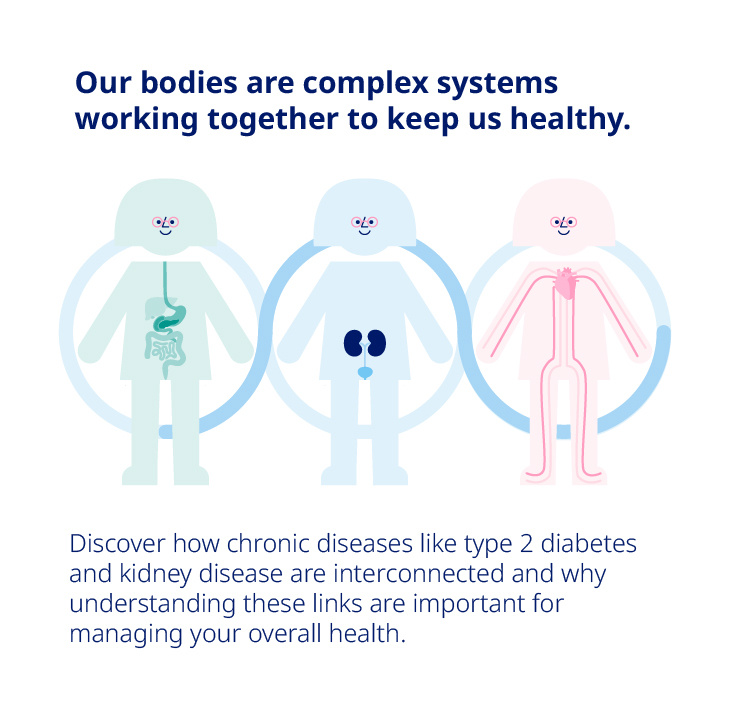
Newly diagnosed with diabetes?
Even though life changes when you live with diabetes, there are a few things you can do to ease the impact of this sudden change.
Got questions about diabetes?
Here you'll find:
• Easy-to-understand info
• Practical daily tips
• Stories from people like you
Let's learn together and make living with diabetes a little easier.
For educational use only. Always talk to your doctor about your health. Brought to you by Novo Nordisk, dedicated to diabetes care.

Discover how the two are connected and learn how you can protect your kidney health with our animated series.
Millions of people are living with diabetes, approximately 90% of whom live with type 2 diabetes1. Despite its prevalence, many myths still persist. At Novo Nordisk, we’re committed to improving awareness and treatment for everyone at risk of diabetes across the globe.
It is also important to manage your weight, diet and exercise¹.
As it is often a progressive disease, medication is often required¹ ².
Some treatments can also reduce the risk of heart disease² ³.
People with type 2 diabetes are at a higher risk of cardiovascular disease with 1 in 3 people with type 2 diabetes developing cardiovascular disease⁴.
Insulin is just one of many types of diabetes treatments².
You learn more from defeat than victory! Better luck next time.
Not bad at all! Still some room for improvement.
You're an expert mythbuster! Time to challenge your friends.
Correct
While managing blood sugar levels is very important in diabetes, it is also important to measure indicators of related risk factors. Regular checks of blood pressure (BP) and blood cholesterol (LDL-c) levels are also key to a diabetes management plan¹.
Correct
Lifestyle factors like diet, exercise, smoking cessation, and maintenance of a healthy body weight are key elements of type 2 diabetes prevention and treatment plans. However, type 2 diabetes is a progressive condition, and medications may be required to sufficiently control blood sugar levels¹.
Correct
There are several different treatment approaches for type 2 diabetes. Most help control blood sugar levels, but they can also help with weight management and help manage long term complications that arise from type 2 diabetes¹ ².
Correct
People living with type 2 diabetes face a higher risk of cardiovascular disease, even if symptoms aren't apparent³ ⁴. Ask your doctor about glucose-lowering, cardio-protective treatment options.
Correct
Type 2 diabetes tends to progress over time, and there are many different options out there for each stage of the disease¹.
HQ24DI00208

HQ25DI00021